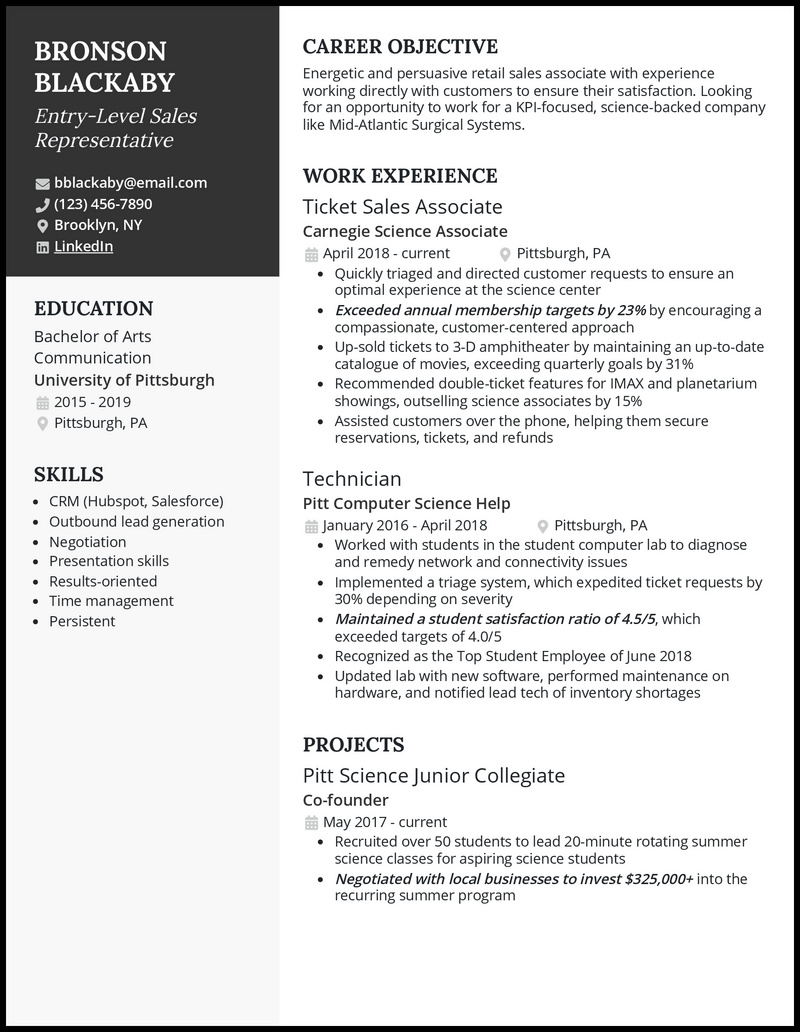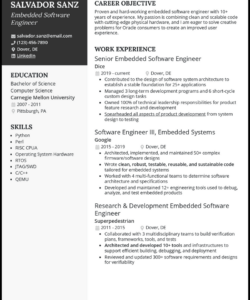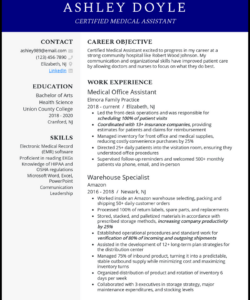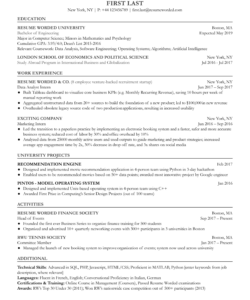So, you’re ready to kickstart your career in sales, but the thought of crafting a resume from scratch feels a bit daunting, especially when you might not have direct sales experience yet. Don’t worry, you’re not alone! Many aspiring sales professionals face this exact challenge. The good news is that with the right approach and a clear understanding of what hiring managers are looking for, you can create a compelling resume that truly highlights your potential.
Your resume is your first impression, your personal sales pitch to a prospective employer. It needs to be clear, concise, and persuasive. Think of it as a preview of the great salesperson you’re about to become. This guide will walk you through the essential components and best practices to build an outstanding entry level sales resume template that gets you noticed and lands you that all-important interview.
Key Sections to Include in Your Entry-Level Sales Resume
Building an effective resume when you’re just starting out requires focusing on your strengths, even if they aren’t directly labeled “sales.” Every resume should begin with your contact information, ensuring recruiters can easily reach you. This includes your full name, phone number, email address, and a link to your professional LinkedIn profile if you have one. Following this, a compelling professional summary or objective statement is crucial for an entry-level applicant. This brief section, usually 2-3 sentences, should immediately tell the reader who you are, what you’re seeking, and what value you bring, even in terms of transferable skills like communication or problem-solving.

Next up is your education. For entry-level positions, this section is often more prominent. List your degree, major, university, and graduation date (or expected date). If your GPA is strong (e.g., 3.0 or higher), include it. Don’t shy away from listing relevant coursework, projects, or academic achievements that demonstrate skills applicable to sales, such as public speaking, marketing principles, or any courses that involved presentations or persuasion. This shows initiative and a foundational understanding of business concepts.
Even without direct sales jobs, your experience section is vital. Think broadly about any roles you’ve held – customer service, retail, hospitality, volunteer work, or even leadership roles in student organizations. For each role, list the organization, your title, and the dates of employment. The key is to describe your responsibilities and achievements using action verbs and focusing on transferable skills that align with sales. Did you resolve customer complaints, explain complex information, or work towards specific goals? These are all valuable.
Highlighting Transferable Skills
Since direct sales experience might be limited, emphasizing your transferable skills is paramount. These are abilities you’ve gained in various settings that are highly relevant to a sales role.
- Strong Communication Skills: Explaining concepts, listening actively, presenting information.
- Problem-Solving Abilities: Identifying issues and finding solutions for customers or colleagues.
- Customer Service Orientation: Handling inquiries, ensuring satisfaction, building rapport.
- Teamwork and Collaboration: Working effectively with others towards a common goal.
- Persuasion and Influence: Convincing others, negotiating, advocating for an idea or product.
- Adaptability and Resilience: Handling challenges, learning new tasks quickly.
Beyond your experience, create a dedicated “Skills” section. Here, you can list both hard and soft skills. Hard skills might include CRM software familiarity (like Salesforce), Microsoft Office Suite proficiency, or language skills. Soft skills, beyond those listed above, could include negotiation, prospecting, objection handling, or lead generation, even if learned through coursework or self-study.
Finally, consider including optional sections that can further bolster your candidacy. Awards and recognitions, volunteer experience, relevant projects, or even certifications (like a sales training certificate) can add depth to your resume and demonstrate your commitment and drive. Remember, every piece of information should contribute to painting a picture of a motivated, capable individual ready to excel in sales.
Tips for Making Your Entry-Level Sales Resume Stand Out
Creating a strong foundation with the right sections is just the beginning; optimizing your resume is what truly makes it shine. One of the most critical tips for any job seeker, especially those new to a field, is to tailor your resume for each specific job application. Avoid sending a generic resume. Take the time to carefully read the job description and identify the keywords, skills, and requirements the employer is looking for. Then, incorporate those exact terms and phrases into your resume, assuming you possess the relevant experience or ability. This not only shows you’ve done your homework but also helps your resume pass through Applicant Tracking Systems (ATS) that many companies use to filter applications.
Another powerful technique is to use action verbs and quantify your achievements whenever possible. Instead of just saying “responsible for customer support,” try “Resolved 15+ customer inquiries daily, improving satisfaction scores by 10%.” Even for entry-level roles, think about any metrics you can apply. Did you help a team reach a certain target? Did you manage a specific number of tasks? Even if your previous roles weren’t sales-focused, framing your accomplishments with numbers demonstrates impact and a results-oriented mindset, which is highly valued in sales.
Presentation matters immensely. Your entry level sales resume template should be clean, easy to read, and professional. Use a consistent, legible font (like Arial, Calibri, or Times New Roman) and maintain proper spacing and alignment. Avoid overly decorative fonts or excessive graphics, which can distract from your content and may not be ATS-friendly. Aim for a one-page resume if possible, especially for entry-level roles, as recruiters spend only a few seconds scanning each document initially. Make sure the most important information is easily visible.
Before you hit send, meticulously proofread your resume for any typos, grammatical errors, or formatting inconsistencies. A resume riddled with errors sends a message of carelessness, which is the last impression you want to make in sales. It’s always a good idea to have a trusted friend, mentor, or career advisor review it as well, as a fresh pair of eyes can often catch mistakes you might have overlooked. They can also provide valuable feedback on clarity and impact.
Ultimately, your resume should convey your enthusiasm for a sales career and your potential to learn and grow. If you don’t have extensive sales experience, focus on your eagerness, coachability, and innate people skills. Highlight any instances where you’ve demonstrated drive, resilience, or a competitive spirit. Emphasize your desire to contribute to the company’s success and your willingness to put in the hard work required to achieve targets.
Securing your first entry-level sales position begins with a well-crafted resume that effectively tells your story and highlights your potential. By focusing on transferable skills, tailoring your content, and presenting a professional document, you significantly increase your chances of landing that crucial interview.
Remember, every great salesperson started somewhere. Your resume is your first opportunity to demonstrate your capability and passion for connecting with people and achieving goals. With careful preparation and a strategic approach, you’ll be well on your way to launching a successful career in sales.


